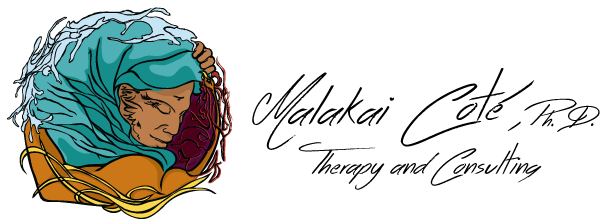"I haven't felt like myself."
"I don't feel excited about anything anymore."
"I want to feel better, I have tried to feel better, but I just can't get out of this hole."
"It hurts, I have no energy, and I don't know why."
Depression can be experienced in a variety of different ways for people depending on culture, gender, and age, but the above statements highlight potential depression narratives. The similarities that cross-cut depression experiences may be experiences of having less energy, feeling melancholy or down, and experiencing notable changes in how one relates in the world. These changes and experiences stay pretty consistent for several weeks and impact work, relationships, and life responsibilities.
According to Center for Disease Control reports, depression impacts about 1 and 10 adults in the United States. In the U.S., depression is one of the most common mental health challenges that people experience. The cluster depression symptoms may include: feeling sad or down, lost interest in things that have once been pleasurable and enjoyable, sleeping too much or sleeping too little, changes in weight that are irrespective of diet and exercise, and having thoughts of suicide. Not all people experience the same signs and symptoms of depression.
The severity of depression can vary and depression can impact people's experiences in a variety of ways. Folks who struggle with more severe depression may have difficulty completing everyday tasks that includes working, basic hygiene, etc. People who experience more mild depression may become socially isolated, have less energy, and feel unmotivated.
People who have had prior depressive episodes are more vulnerable to experience additional episodes in the future. Family history also plays a role in depression, as there is a higher risk for depression if family members have been diagnosed with depression or have struggled with bouts of sadness.
How do I know if it's Depression?
Clinical depression can be diagnosed by mental health providers, primary care providers, and psychiatrists (e.g., medical doctors who specialize in mental health diagnosis and treatment). Given that other health-related concerns can also look like depression, it is important to work with healthcare providers to determine if there are any other medical or mental health issues that may be contributing to specific depression symptoms. When visiting with a medical doctor, the doctor may run blood tests or other tests to ensure that there may not be other causes contributing to your symptoms. Psychologists may ask specific questions about your experience and they may ask you to complete brief questionnaires that assess your internal experience. Mental health clinicians use this information with other information that you provide to clarify what's up and to determine what might be helpful next steps to approach your current challenges.
How do I get help and support?
Depression is highly treatable with psychotherapy and potentially with the use of medications. The earlier people pursue treatment, the better the outcomes. In some cases, you may work with both medical doctors and mental health providers to address depression related concerns. This approach is considered best practice for some forms of depression, especially with more severe forms of depression.
If you have medical insurance, check out behavioral health providers in your area that accept your insurance. Often time, "mental health" and "behavioral health" means the same thing. If you are in the process of securing insurance or if you prefer to skip the medical insurance bureaucracy, there are a number of behavioral/mental health providers in Sacramento that provide mental health services. There are a lot of options when it comes to which type of mental health provider to choose, but ultimately, feel free to choose someone who you trust and feel comfortable with.
